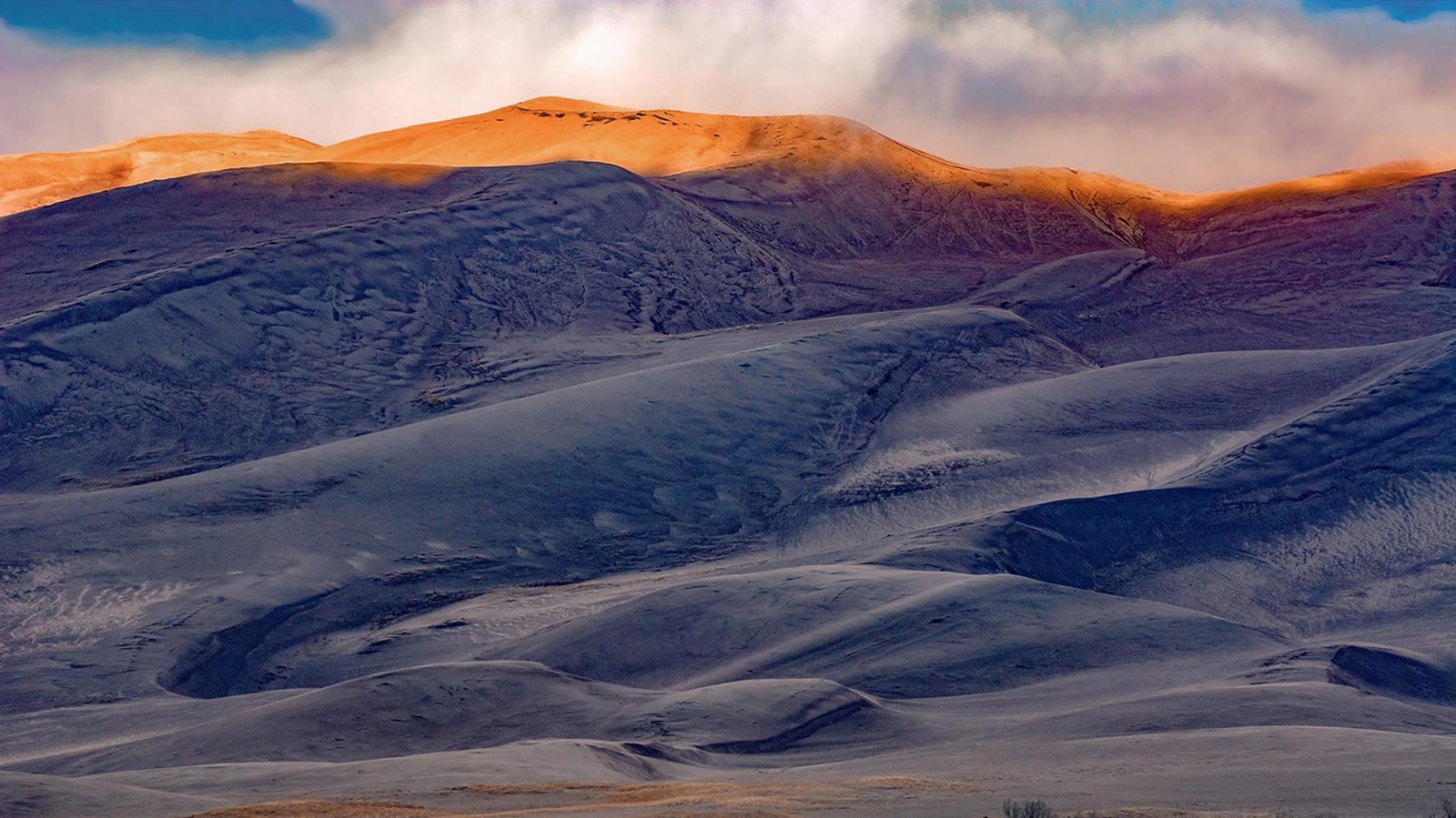Last updated: May 1, 2025
Place
High Dune on First Ridge

NPS/Patrick Myers
Quick Facts
Location:
Top of first ridge of dunes
Significance:
Most common destination for visitors
Designation:
National Park and Wilderness Area
Amenities
2 listed
Beach/Water Access, Scenic View/Photo Spot
The high dune on the first ridge is neither the highest in elevation nor the tallest in the dunefield, but it looks that way from the main parking lot. This is the most common destination in the dunefield, providing a great view of the entire dunefield. It is about 692 feet (210 m) from base to top. Cross a half-mile (1km) of the Medano Creek bed, then zigzag up along ridgelines to reach it. Wear sturdy footwear year round; boots with long pants work best to keep sand out of your shoes.
GPS coordinates for High Dune on First Ridge:
37.74908, -105.532775
Average round trip hiking time for High Dune is 2 hours, but plan to take as much as 4 hours to hike roundtrip if not acclimated to the high altitude and lower oxygen level. In summer, plan to hike very early morning to avoid 150 degree F sand or thunderstorms with lightning. Winds can occur any time of year during storm fronts and most often in afternoon hours. Frigid temperatures and blizzards are common in winter.
Discover unusual insects, plants, wildlife tracks, ripples, and sand grains of every color. In warmer months, watch for one of 7 species of endemic insects, found nowhere else in the world, that are specially adapted to the extreme environment here.
GPS coordinates for High Dune on First Ridge:
37.74908, -105.532775
Average round trip hiking time for High Dune is 2 hours, but plan to take as much as 4 hours to hike roundtrip if not acclimated to the high altitude and lower oxygen level. In summer, plan to hike very early morning to avoid 150 degree F sand or thunderstorms with lightning. Winds can occur any time of year during storm fronts and most often in afternoon hours. Frigid temperatures and blizzards are common in winter.
Discover unusual insects, plants, wildlife tracks, ripples, and sand grains of every color. In warmer months, watch for one of 7 species of endemic insects, found nowhere else in the world, that are specially adapted to the extreme environment here.
